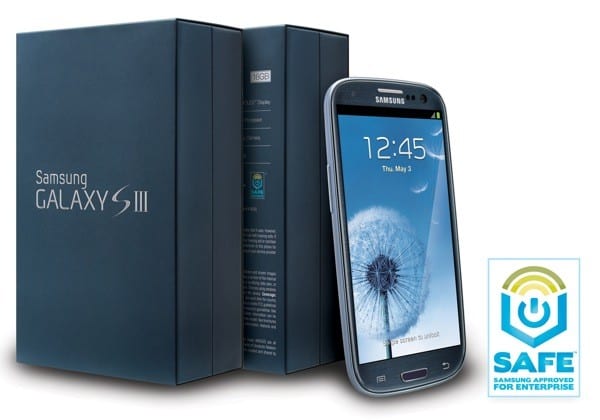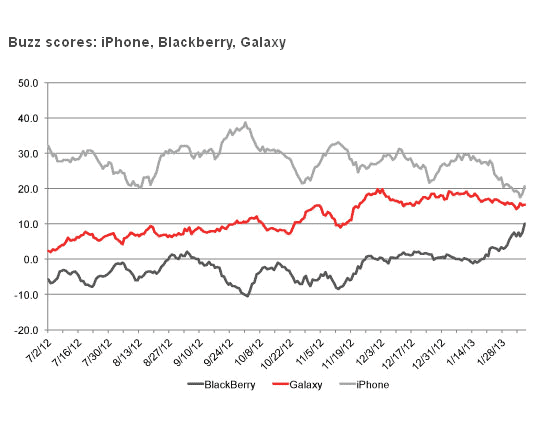
In January, a range of Samsung products, including the Galaxy S II and the Galaxy Tab joined Research in Motion in receiving Federal Information Processing Standard 140-2 (FIPS) certification from the US National Institute of Standards and Technology (NIST). The FIPS certification means the NIST believes the devices are safe for use by government agencies and private institutions that handle secure data. Will business people shun their BlackBerrys for the Samsung Galaxy?
According to several sources, a new Samsung Galaxy phone featuring Samsung Approved For Enterprise (SAFE) features will hit the US market next month.
Earlier this month, Apple filed a motion to add the The Samsung S3 series to a line of devices it tried to stop from entering the American market last summer. Apple filed a preliminary injunction on June 5th, 2011 in the District Court for the Northern District of California, maintaining that the Galaxy Nexus was infringing on Apple interface patents. Samsung said it believes Apple’s case is without merit.
Samsung released the device on May 29th in Europe and is rolling it out in other countries. Weeks ago, Reuters reported that the new Samsung S3 had approximately nine-million pre-orders from more than a hundred global carriers.
_________________________
This story is brought to you by Zecotek Photonics (TSXV:ZMS). As of November 16, 2011, Zecotek owned title to or controlled more than 55 patents and applications. Click here to learn more.
__________________________
In January, a range of Samsung products, including the Galaxy S II and the Galaxy Tab joined Research in Motion in receiving Federal Information Processing Standard 140-2 (FIPS) certification from the US National Institute of Standards and Technology (NIST). The FIPS certification means the NIST believes the devices are safe for use by government agencies and private institutions that handle secure data.
Samsung’s SAFE devices use AES-256 bit encryption standard and on-device encryption that can be enabled through a Microsoft® Exchange ActiveSync® IT policy or mobile device management IT policy. The company says that under the SAFE program, “…enterprise users are provided an optimized, secure path to corporate resources from their device”. That includes access to corporate intranets, network resources and software applications.
While RIM’s losses in consumer market share have been well documented, Ars Technica IT Editor Sean Gallagher says RIM’s once tight grip over the enterprise market could be ending, arguing that the battle will be waged at the platform level. Gallagher says Microsoft’s (NASDAQ:MSFT) “…mobile moves could deliver a knockout blow to RIM’s dominance of the enterprise.” He argues that the platform of choice for Android and IOS devices will not be RIM’s secure network, but Microsoft’s Systems Center Configuration Manager, which “makes purchasing a license for BlackBerry Mobile Fusion a bit less attractive—even if RIM’s software is better.”
At press time, shares of Research in Motion on the TSX were down 1.8% to $10.14.
________________________________
________________________________
Comment
One thought on “Samsung to RIM: Your hold on Enterprise isn’t SAFE”
Leave a Reply
You must be logged in to post a comment.






 Share
Share Tweet
Tweet Share
Share




As a business person I do not trust anyone but blackberry for security. Stupid article .